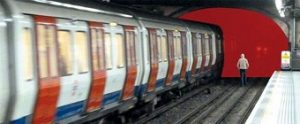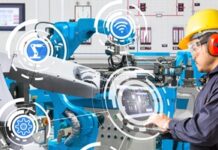
Accurately detecting a person entering a tunnel – even when trains are simultaneously coming in and out of the tunnel – is a very complex task. However, it could be achieved by using Optex Lidar technology and its embedded sensing analytics alongside a bespoke detection algorithm, according to Optex.
For railway operators it is critical to detect anyone entering a tunnel for obvious security and safety reasons. Railway or subway tunnels are enclosed, echoey, dark and often humid areas. Laser sensors are not affected by lighting conditions which makes them suitable for these types of applications. Optex Lidars analyse the speed, size and distance of the objects detected, meaning they track the objects within the detection area and understand the ratio size/distance of the object.
This provides the ability to accurately detect a specific size of object at a distance and close up – in this application it can distinguish between humans and trains. For a successful ‘tunnel intrusion detection’, the solution is required to ignore the trains but detect people, and according to Optex, this was achieved by developing a bespoke detection algorithm.
“If a moving object the size of a train enters the tunnel no alarm is generated, but if an object the size of a human enters the tunnel, even if a train was entering at the same time, then an alarm is generated,” says Masaya Kida, Managing Director of Optex EMEA.
He also stresses that Optex lasers feature environmental analytics enabling the area of detection to be adjusted, to auto-learn changes to the environment, and to indicate to the security control system if its ability to detect is affected by, for instance, a soiled lens.
The speed of detection is another important factor for the application to be successful, as it is difficult for any system to detect fast moving objects.
Part of the requirement was to test if the Lidar could detect a person running inside the tunnel when a train was entering the tunnel at the same time. And thanks to the scanning speed of the sensor, this criterion was also achieved. “Detecting people entering tunnels is a priority for many railway operators in Europe and in the last five years we have worked on a number of projects, constantly improving our Lidar technology,” says Masaya Kida











